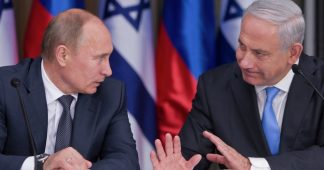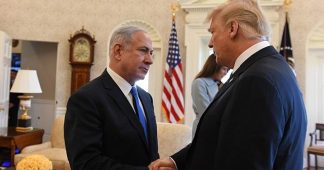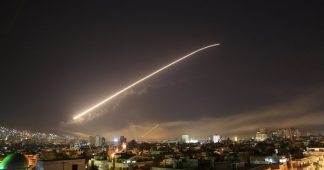Putin May Limit Israel’s Operations in Syria in Retaliation for U.S.-led Strikes
The attack reflects the schism between Trump and his allies that may affect military campaigns down the line – In Israeli eyes, the attack doesn’t resolve Israel’s ‘private’ issue with Syria and Iran
The dilemma faced by decision-makers in the United States, Britain and France wasn’t whether to strike Syria – Donald Trump had already announced that he would. The dilemma was how to carry out a measured attack under the given political conditions.
The main concern is a Russian response that may lead to an escalation or even an international clash on the Syrian front. The speed with which U.S. Defense Secretary James Mattis announced that the assault was a “one-time shot,” coupled with the limited number of precise targets, imply that the “tripartite aggression,” as Iran dubbed the strike, was meant mainly to send a tough message – but not much more than that. (And by using the term “tripartite aggression,” Iran was borrowing from what the Arab world calls the Sinai war of 1956.)
This message conforms with the West’s commitment against unconventional weapons – even though in Syria, the conventional weapons are the ones killing hundreds of thousands of people. Yet even a “red line” against chemical weapons begs an explanation for why this week’s incident triggered the strike and not the dozens of times chemical weapons have been used (aside for the chemical attack a year ago in Khan Sheikhoun near Idlib).
Also read











